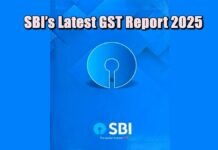
Key Points
- The central government has confirmed there is NO plan to impose GST on UPI transactions above ₹2,000.
- Minister Pankaj Chaudhary told Parliament that GST Council has made no such recommendation and all claims are false.
- Controversy erupted after small traders in Karnataka received GST notices linked to UPI data; these are from the state, not central government.
- Union Minister Pralhad Joshi accused Karnataka’s commercial tax department of misleading the public by blaming the Centre.
- Notices in Karnataka are queries about GST compliance, not final tax demands, and mainly target large, unregistered digital turnover.
- Consumers making UPI payments of any size are NOT required to pay GST solely for using UPI.
New Delhi: India’s central government has firmly denied speculations about the imposition of Goods and Services Tax (GST) on Unified Payments Interface (UPI) transactions exceeding ₹2,000. Minister of State for Finance, Pankaj Chaudhary, clarified in the Rajya Sabha that the GST Council has not recommended nor is the Centre considering any such levy on digital payments, quelling days of widespread rumors and social media panic.
What Sparked the Confusion?
The controversy gathered steam after thousands of small traders in Karnataka received GST-related notices referencing their UPI transaction volumes. This led to speculation that GST was being enforced on UPI payments, especially for amounts above ₹2,000.
State vs Centre: Joshi Blames Karnataka for Notices
Union Minister Pralhad Joshi strongly refuted accusations from Karnataka’s Deputy CM that the central government was responsible for the tax notices. He stated:
“It is Karnataka’s commercial tax officials who issued the GST dues notices to small traders. If these notices came from the Centre, traders in other states would have received them too. This is a state action—not a central one.”
Karnataka’s own Commercial Tax Department admitted that these notices focus on traders whose UPI-linked turnover far exceeds GST registration thresholds (₹40 lakh for goods, ₹20 lakh for services). For those dealing in exempt goods like fruits or vegetables, the notices are enquiries, not final demands; affected traders can respond with documentation to have notices dropped.
Centre’s Official Stand: No GST on UPI Payments
Minister Pankaj Chaudhary told Parliament:
“There is no recommendation of levying GST on UPI transactions of over ₹2,000 from the GST Council. Claims of GST on large UPI payments are baseless.”
Multiple government clarifications urge the public not to believe unverified reports. GST is applied only on the supply of taxable goods or services not on the mode of digital transfer like UPI.
For Consumers & Merchants: What You Need to Know
- Paying via UPI any amount does not itself incur GST for the end user.
- GST applies only to the underlying product or service being bought (if taxable), not to transferring money digitally.
- Service or platform charges (if any) levied by payment aggregators may include GST, but since January 2020, there’s no MDR (Merchant Discount Rate) on UPI Person-to-Merchant (P2M) payments, making digital transactions cheaper for both merchants and consumers.
The Karnataka Angle: Political Row, Clarifications, and Withdrawals
Karnataka’s tax department stated some notices were precautionary “inquiries” issued after reviewing digital turnover data from UPI providers. With traders threatening statewide boycotts and strikes, the state government called for amnesty and clarified that exempt goods/services would not face GST demands; many of the contested notices have since been withdrawn for eligible traders.
Digital payments remain tax-friendly and the Centre’s stand as of July 27, 2025, is unequivocal: No new GST for UPI payment users, of any amount, is in the pipeline.



















































